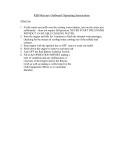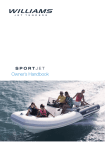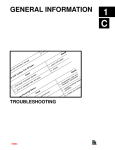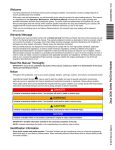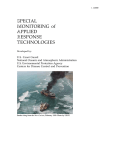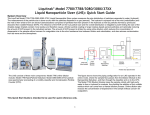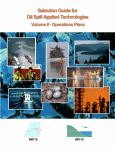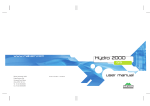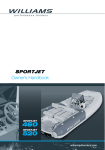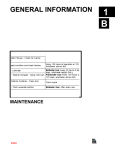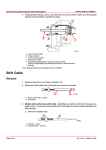Download Operation in oily-waters
Transcript
Service Bulletin Bulletin No. 2010-09 Circulate to: Sales Manager Accounting Service Manager Technician Parts Manager Operating in Oil‑Contaminated Waters Models Affected All Mercury Marine engines operating in oil‑contaminated waters Situation Marine propulsion products operating in oil‑contaminated waters face a number of variables that are difficult to predict. Operating conditions could range from a light oil slick on the water surface in offshore use to a crude oil layer several inches thick mixed with oil dispersants and water in near shore areas. The water may be any combination of saltwater, brackish, or fresh water. Although the potential chemistry is largely undefined, there are a number of considerations when operating outboard, sterndrive, and inboard products in such conditions. Cooling System • Small cooling passages may be blocked by oil sludge. • Thermostats and poppet valves may be plugged by oil sludge. • Potential plugging of water strainers and outboard telltale ports. • Water pump efficiencies can be reduced by the fluid mix. • Coated cooling systems can become inefficient resulting in higher engine block temperatures. • Because Guardian sensors monitor the cooling water temperature rather than the engine block temperature, Guardian may not effectively protect the engine block from high temperatures. Degradation of Rubber‑Based Components • Water pump impellers may absorb oil and swell. • Debonding of rubber from solid backing materials including propellers. • Hoses, engine mounts and other rubber based components may suffer from swelling, loss of rigidity, decrease in strength and possible failure. • Bellows used on sterndrive products (U‑joint, exhaust, and shift shaft) are of special concern due to their function of sealing the boat transom. Correction If possible, avoid operating marine propulsion products in oil‑contaminated waters for extended periods of time. If a vessel is used in oil‑contaminated waters monitor engine operating temperatures. After use, the cooling system should be immediately flushed with hot water, not to exceed 65° C (150° F) for 10 to 15 minutes with the propeller removed. • Outboard and SportJet products: Connect the hose to a flushing attachment mounted to the outboard gearcase or the SportJet flush fitting and run the engine up to 2000 RPM to open the poppet. The outboard should be run in the normal vertical operating position. • Inboard and sterndrive products: Always refer to the appropriate service manual or owner’s manual for correct procedures when flushing inboard and sterndrive cooling systems. Observe the engine operating temperature and do not allow the engine to overheat when flushing. Extended exposure to oil contaminants may not have an immediate effect on engine components, but exposed units should be scheduled for frequent inspection of all rubber‑based components. Those components should be replaced at any sign of degradation. THE INFORMATION IN THIS DOCUMENT IS CONFIDENTIAL AND PROTECTED BY COPYRIGHT AND IS THE PROPERTY OF MERCURY MARINE. This document is provided for the sole and exclusive use of the original recipient as prescribed by Mercury Marine and may not be distributed or copied, digitally or otherwise, without the prior written consent of Mercury Marine. 2010-09 JUNE 2010 © 2010 Mercury Marine Page 1 / 2 Operating in Oil-Contaminated Waters Exterior surfaces should be cleaned as needed to control buildup of contaminants, to control corrosion, and to keep water inlets unobstructed. A power washer set to an appropriate pressure and spray pattern may be used on painted surfaces and anodes. Anodes may also be removed and grit blasted, if necessary. However, a power washer could damage MerCathode components and soft surfaces such as bellows, hoses, and seals and must not be used to clean them. Instead, use a water hose at typical pressures. Consider environmental impact when flushing the cooling system, choosing cleaning chemicals, and power washing exterior surfaces. Disposal of parts, cleaning materials, petroleum products, and chemicals must comply with local regulations and guidelines. Warranty Damage caused to Mercury Marine propulsion products by exposure to or operation in oil‑contaminated waters is not covered by warranty. THE INFORMATION IN THIS DOCUMENT IS CONFIDENTIAL AND PROTECTED BY COPYRIGHT AND IS THE PROPERTY OF MERCURY MARINE. This document is provided for the sole and exclusive use of the original recipient as prescribed by Mercury Marine and may not be distributed or copied, digitally or otherwise, without the prior written consent of Mercury Marine. Page 2 / 2 © 2010 Mercury Marine JUNE 2010 2010-09


